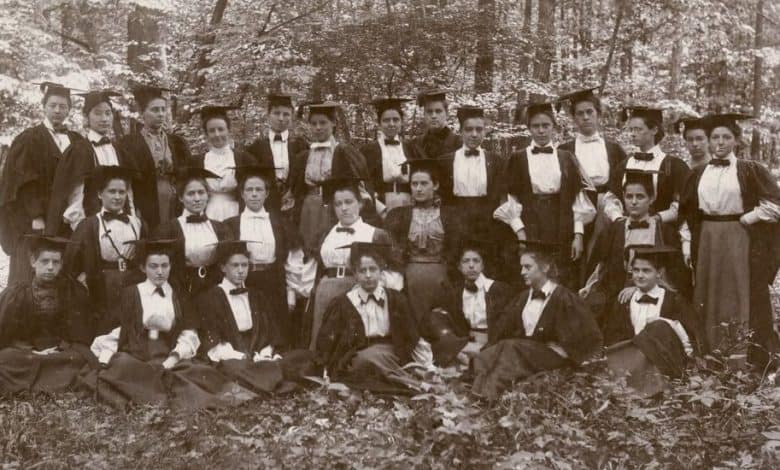Graduation’s Pomp Goes On, No Matter the Circumstance

Recycled robes, processional marches, silver pens from Tiffany: It is graduation season in America. May brings a nationwide festival of youth, with roots stretching back to before the foundation of the republic, and though many college commencements this month have taken place under police surveillance amid student outcry, the ceremonies have gone on.
There are more than three centuries of precedents for graduation rituals — for its dress, for its speeches, and for its disturbances. If commencement is ripe for contestation (the backs turned on the speaker, the kaffiyeh replacing the pointed sash), that’s because it’s one of the very last venues in which Americans show a commitment to how we do things, and not just what we say and record. I am always a little surprised that universities have hung onto these habits, almost uniquely longstanding. This is a country where very little endures. You can arrive at the Met Gala half-naked. You can play Bach or Beyoncé at a funeral. But graduation still has rules.
The students graduating from four-year colleges and universities this month began their studies, for the most part, in Pandemic Year Zero. They missed, in 2020, the walk across the football field or the auditorium stage to collect their high school diploma, and as the war in Gaza continues to inflame campuses some are facing disarray again. Columbia University, which called in the New York Police Department to oust pro-Palestinian student demonstrators, broke its universitywide commencement into smaller chunks. Emory University moved its ceremonies off campus.
None has been outright canceled, though. It takes a lot to cancel a graduation. At Harvard, where hundreds of students walked out of this year’s main ceremony,outbreaks of smallpox meant no commencement in 1752, 1757 (the Seven Years’ War didn’t help that year), and 1764. Revolutionary hostilities canceled the commencements of 1774-78 and 1780, but Harvard would not miss a commencement again until 2020. The ceremony took place through the Civil War and two world wars, and it went ahead in 1970, after National Guardsmen shot and killed four students at Kent State who were protesting the war in Vietnam. (Demonstrations did cancel graduation at Boston University, Hunter College and other schools; Kent State’s was scaled down.) In Harvard Yard that June, graduates protested the war by refusing to don cap and gown, or else by wearing white armbands over their robes. Local demonstrators with a bullhorn occupied the dais to demand low-income housing in Cambridge. Students heard dueling orations that denounced the Nixon administration and Students for a Democratic Society.
